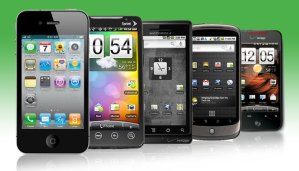
Earlier this year researchers from Intel, Penn State, and Duke Universities put some Android application makers in hot water, claiming their programs transmitted users’ private data to advertising services without permission. Now, research commissioned by the Wall Street Journal has tested 101 popular mobile applications for both Android and Apple’s iOS platform, and the results are not encouraging. The Wall Street Journal claims that over half transmitted a phone’s unique identifier to third parties without users’ permission, and 47 of the apps sent the phone’s location to third parties in some way. Five apps went much further, sending users’ gender, age, and other personal data to third parties.
“The findings reveal the intrusive effort by online-tracking companies to gather personal data about people in order to flesh out detailed dossiers on them,” the Wall Street Journal reported.
The research was conducted by consulting firm Electric Alchemy using an iPhone 3G and an Samsung Captivate (one of Samsung’s Galaxy S Android smartphones). Among the applications sharing the most user information with third parties were TextPlus 4 (an instant messaging client that reportedly discloses users ages, genders, and ZIP codes to multiple ad networks) along with Paper Toss, Grindr, and the popular streaming music service Pandora. However, the report finds that the most commonly-disclosed information is a mobile device’s unique ID number, rather than direct information about a user.
Although it’s certainly possible to use a phone’s unique ID maliciously to associate a phone with particular users, many advertising networks and analytics services use those sorts of mechanisms to assemble anonymous, aggregate data, often for ad-targetting purposes.
Unlike many software applications and Web-based services, comparatively few mobile phone applications have privacy policies. In any case, the handful that do include terms of use (which may disclose information-sharing with advertising networks) are rarely read or understood by users. The skyrocketing popularity of smartphones and mobile applications means that many mobile users may have no idea what sort of information about them is being sent to third parties. In most cases, mobile applications provide no mechanism for users to opt-out of tracking or information-sharing functions.
Neither Apple nor Google have yet responded to the report; however, both companies have consistently claimed that user privacy is a top concern for their platforms.
The Wall Street Journal tested 50 popular apps for iPhone and Android; the 101’s application in their testing was their own iPhone application.

